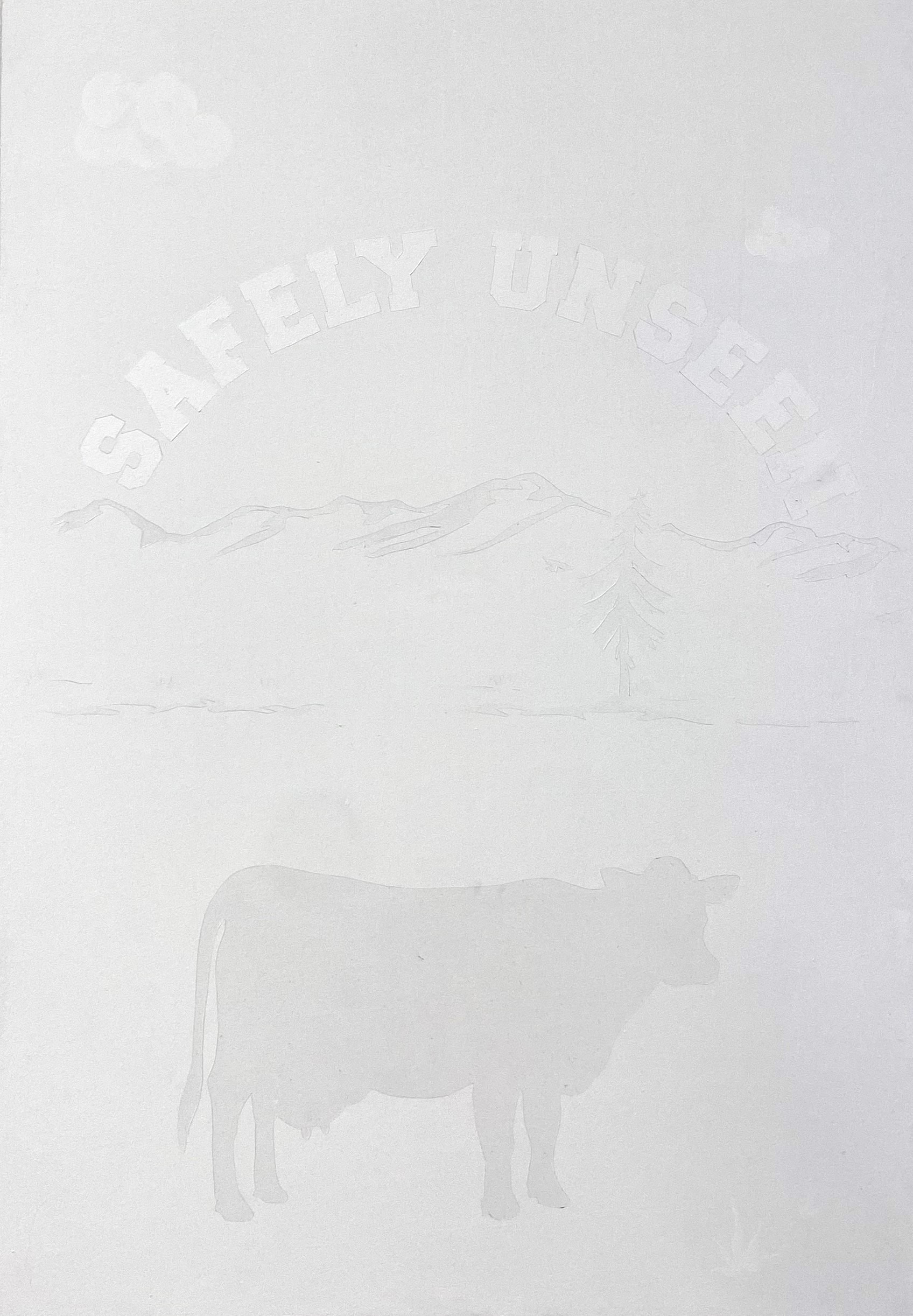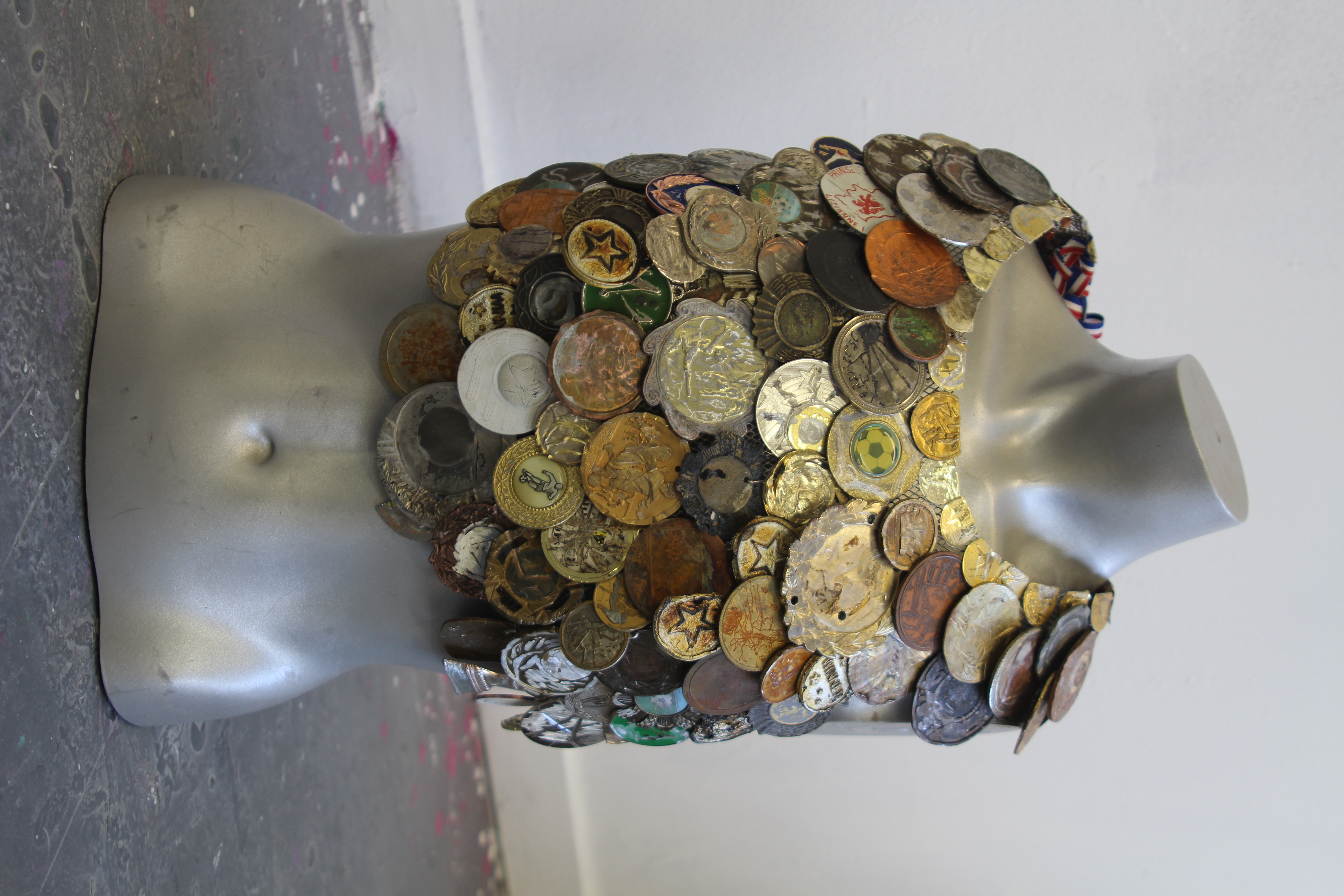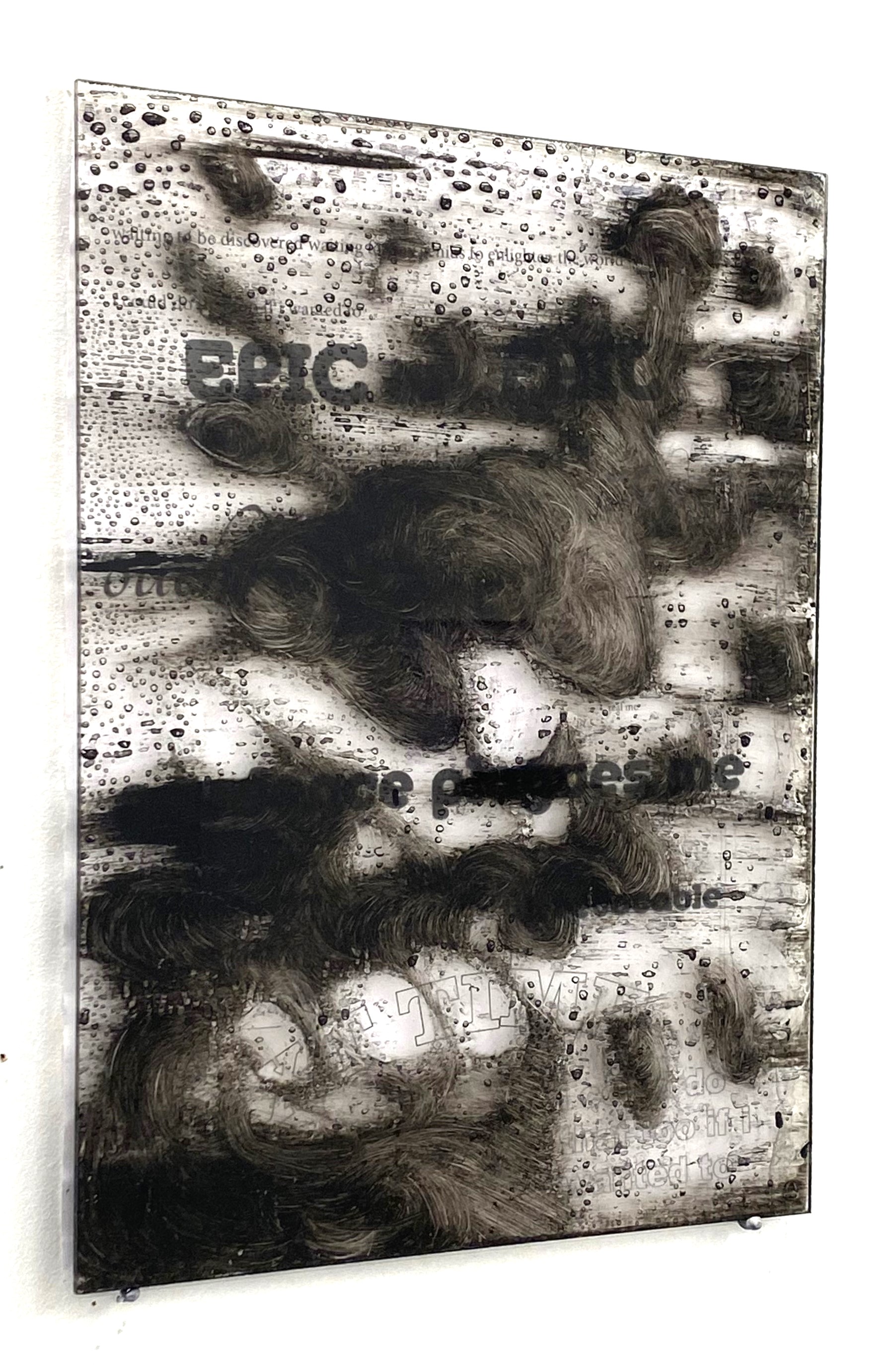TONI KRONWITTER//TONI KRONWITTER// TONI KRONWITTER
 My practice rethinks painting in the context of contemporary issues like social media and publicity. I see this as a folding of history – bringing old mediums and new concepts together.
I have a deep fear of being seen, which I turn into a game – I play with hiddenness and revelation in my works, questioning the notion of “safety”, sometimes quite literally by using words as a painterly language.
My practice rethinks painting in the context of contemporary issues like social media and publicity. I see this as a folding of history – bringing old mediums and new concepts together.
I have a deep fear of being seen, which I turn into a game – I play with hiddenness and revelation in my works, questioning the notion of “safety”, sometimes quite literally by using words as a painterly language.
I use parts of my diary, calendar and personal archive in my work – I want to engage with the very millennial – Gen Z issue of oversharing online and creating alter egos and masks. I think about the Alt Lit scene and Lena Dunham’s show “Girls” and how the explosion of social media in the 2010s led to this weird situation where people (mostly women) were encouraged to plunder the depths of their soul and personal life for attention online – whether positive or negative, whether it brought material benefits or not, even if posting on the mainframe is like an irrevocable act, etching on the face of the internet.
 Importantly, every assertion I make with language in my work is immediately negated through material alteration – I cover, erase, hide and camouflage. I opt for monochromacity, rigid materiality, reflectivity, and choose low contrast between colours and textures. This created a happy accident that fits in with my ideas – namely, my paintings totally resist photography. This hinges on a broader suspicion of the exploitative nature of the art market, and the question Walter Benjamin asked almost a century ago of what photography and reproduction of artwork does to it. A lot of work is just super instagrammable nowadays! Certain styles of image-making today give the uncanny feeling that they are a self-branding tool, or a piece of content for a feed – they jump out at you, looks pretty and impressive because of the artist’s technical proficiency, but then you scroll past because it doesn’t awaken much else in you.
Importantly, every assertion I make with language in my work is immediately negated through material alteration – I cover, erase, hide and camouflage. I opt for monochromacity, rigid materiality, reflectivity, and choose low contrast between colours and textures. This created a happy accident that fits in with my ideas – namely, my paintings totally resist photography. This hinges on a broader suspicion of the exploitative nature of the art market, and the question Walter Benjamin asked almost a century ago of what photography and reproduction of artwork does to it. A lot of work is just super instagrammable nowadays! Certain styles of image-making today give the uncanny feeling that they are a self-branding tool, or a piece of content for a feed – they jump out at you, looks pretty and impressive because of the artist’s technical proficiency, but then you scroll past because it doesn’t awaken much else in you.
 Through this exploration of hiddenness, I am always questioning power structures and modes of gaining legitimacy in the world. I am concerned by who has
ownership of my work and who decides on the categories of judgement; with the
intrusiveness of putting your work
“out there”, up for economic valuation, and the vulnerability of the artist. Does making art in this framework mean surrendering my agency? And is there a reciprocal practice of care between the artist and the audience?
Through this exploration of hiddenness, I am always questioning power structures and modes of gaining legitimacy in the world. I am concerned by who has
ownership of my work and who decides on the categories of judgement; with the
intrusiveness of putting your work
“out there”, up for economic valuation, and the vulnerability of the artist. Does making art in this framework mean surrendering my agency? And is there a reciprocal practice of care between the artist and the audience?






